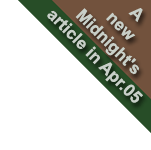



บทความมหาวิทยาลัยเที่ยงคืน
ลำดับที่ 563 หัวเรื่อง
แนวคิดจริยธรรมที่เป็นสากล
สุธน หิญชีระนันทน์
สมาชิกมหาวิทยาลยเที่ยงคืน
The Midnight 's article





มหาวิทยาลัยเที่ยงคืนกำลังจัดทำบทความที่เผยแพร่บนเว็ปไซคทั้งหมด
กว่า 560 เรื่อง หนากว่า 7000 หน้า ในรูปของ CD-ROM ในราคา 120 บาท(รวมค่าส่ง)
สนใจสั่งซื้อที่ midnightuniv(at)yahoo.com - midnight2545(at)yahoo.com
หรือ ส่งธนาณัติถึง สมเกียรติ
ตั้งนโม : ไปรษณีย์มหาวิทยาลัยเชียงใหม่ 50202
กรุณาส่งธนาณัติแลกเงินไปยัง
สมเกียรติ ตั้งนโม : คณะวิจิตรศิลป์ มหาวิทยาลัยเชียงใหม่ ถนนสุเทพ อำเภอเมือง
จังหวัดเชียงใหม่ 50202
อย่าลืมเขียนชื่อ ที่อยู่ ของผู้รับตัวบรรจงด้วยครับ เพื่อป้องกันความผิดพลาดในการจัดส่งทางไปรษณีย์
(การจัดส่งทางไปรษณีย์ จะลงทะเบียนทุกฉบับ)
การเมือง เศรษฐกิจ
สังคม และจริยธรรม
แนวคิดจริยธรรมที่เป็นสากล
พลเรือโทสุธน หิญชีระนันทน์
: แปล
สมาชิกอาวุโส มหาวิทยาลัยเที่ยงคืน
บทความมหาวิทยาลัยเที่ยงคืน ลำดับที่ 563
หมายเหตุ : ผลงานวิชาการนี้แปลจากบทบรรณาธิการ
เรื่อง
The Universal Ethic โดย Prof. Dr. Fred E. Foldvary บรรณาธิการอาวุโส
The Progress Report กันยายน 1998 ที่ http://www.progress.org/archive/fold54.htm)
(บทความชิ้นนี้ยาวประมาณ
5 หน้ากระดาษ A4)
นโยบายเกี่ยวข้องกับจริยธรรม เมื่อเราพูดถึงนโยบายเศรษฐกิจและการเมือง เช่น การปฏิรูปภาษี หรือนโยบายต่างประเทศ มันจะเกี่ยวข้องกับจริยธรรมและค่านิยม สิทธิมนุษยชนส่อความหมายถึงมูลฐานทางศีลธรรมบางอย่างสำหรับการมีสิทธิ แต่ประชาชนมีความเชื่อทางจริยธรรมมากหลายที่แตกต่างกันและขัดแย้งกัน ดังนั้นเราจะควรใช้มาตรฐานทางศีลธรรมของใครสำหรับนโยบายของโลก หรือแม้แต่ของชาติ?
ถ้าเราใช้จริยธรรมของกลุ่มบุคคล วัฒนธรรม หรือคตินิยม (หรืออุดมการณ์ - ideologies) อันใดโดยเฉพาะ ก็เป็นการนำจริยธรรมนี้ไปบังคับใช้โดยพลการต่อผู้ที่มีความเห็นทางจริยธรรมแตกต่างออกไปด้วย สำหรับความยุติธรรมทางสังคมที่เป็นสากล เราจำเป็นจะต้องใช้จริยธรรมที่ใช้ได้เป็นการทั่วไป จริยธรรมสากล (u.e. - universal ethic) เช่นนี้มีอยู่ และถ้าเราต้องการความเป็นธรรมทางสังคม เราก็จะต้องทำความเข้าใจว่ามันมาจากไหน
จริยธรรมสากลจะมาจากวัฒนธรรมอันใดอันหนึ่งมิได้ ดังนั้นมันก็ต้องได้มาจากบางสิ่งที่เป็นสากลยิ่งกว่าสำหรับมนุษยชาติ นั่นคือ ธรรมชาติของมนุษย์ มี 2 ส่วนของธรรมชาติของมนุษย์ที่ปราชญ์ John Locke ใช้ คือ อิสรภาพ (independence) และความเสมอภาค (equality) Locke เขียนไว้ว่า
"สภาพของธรรมชาติมีกฎ (law) แห่งธรรมชาติควบคุมอยู่ ซึ่งมีผลบังคับแก่ทุกคน และเหตุผล ซึ่งคือกฎนั้น สอนมนุษย์ทุกคนที่ต้องการฟังว่า โดยความเท่าเทียมกันและความเป็นอิสระ ทุกคนไม่ควรทำร้ายผู้อื่น ไม่ว่าจะเป็นด้านชีวิต สุขภาพ เสรีภาพ หรือ ทรัพย์สิน"
"กฎธรรมชาติ" หรือกฎศีลธรรมธรรมชาตินี้ถูกกำหนดขึ้นโดยหลัก (rules) ที่ประกอบกันเป็นจริยธรรมสากล จริยธรรมเป็นสิ่งที่บอกว่าการกระทำของมนุษย์ทุกอย่างนั้น ดี (good) เลว (evil) หรือ เป็นกลางๆ (neutral) ในด้านคุณค่าหรือค่านิยม (values) ทางศีลธรรม คุณค่าเหล่านี้มาจากไหน? ข้อตั้ง (premise) เรื่องอิสรภาพที่ว่าบุคคลคิดและรู้สึกโดยอิสระ ส่อความว่าคุณค่าหรือค่านิยมเป็นเรื่องอัตวิสัย ซึ่งมาจากความปรารถนาและความรู้สึกของบุคคล ข้อตั้ง"เรื่องความเท่าเทียมกันของบุคคล" ให้สถานภาพเท่ากันแก่คุณค่าเหล่านี้
จริยธรรมสากลมีหลักความดีทางศีลธรรมว่า การกระทำซึ่งเป็นประโยชน์ที่พึงปรารถนาแก่ผู้อื่นเป็นความดีทางศีลธรรม การช่วยเหลือผู้อื่นตามที่ผู้นั้นต้องการให้ช่วย ถือเป็นการทำความดี ถ้าท่านคิดว่าท่านกำลังทำบางสิ่งที่เป็นการดีแก่ผู้อื่น แต่เขาไม่คิดว่ามันดีสำหรับเขา เช่นนี้ โดยจริยธรรมสากล การกระทำนั้นก็ไม่ใช่ความดี
หลักความเลวนั้นมีความยุ่งยากมากกว่า เพราะมีการกระทำ 2 แบบที่บุคคลรู้สึกว่าเป็นสิ่งที่เลวสำหรับเขา แบบหนึ่งเป็นการล้ำเส้น (offense) ที่ผู้อื่นเกิดความรู้สึกในความคิดจิตใจของเขาเอง อีกแบบหนึ่งเป็นการรุกราน (invasion) เข้าไปในร่างกายหรือทรัพย์สินของบุคคล ซึ่งมีความเกี่ยวข้องที่มากกว่ากับความคิดจิตใจ
ตัวอย่างเช่น ถ้ามีบางคนใส่ทีเชิ้ตที่มีข้อความซึ่งบางคนไม่ชอบ การกระทำนี้ก็เป็นเพียงการล้ำเส้น เพราะแต่ละคนจะชอบหรือไม่ชอบย่อมขึ้นอยู่กับมุมมองส่วนตัวของแต่ละคน ตรงกันข้าม ถ้าผู้หนึ่งยิงกระสุนเข้าร่างกายผู้อื่น นี่เป็นการรุกรานที่ไม่ได้เชื้อเชิญ ในด้านของจริยธรรมสากล เฉพาะการรุกรานที่ไม่ได้เชื้อเชิญจึงถือเป็นการกระทำที่เลว ส่วนการล้ำเส้นนั้นถือเป็นการกระทำที่เป็นกลางๆ การกระทำเฉพาะที่มีผลกระทบต่อตนเองจะถือว่าเป็นกลางๆ หรือดี ไม่ใช่เลว เพราะไม่มีการรุกรานผู้อื่น
ดังนั้นในขั้นนี้เราจึงมีหลักมูลฐาน 3 ข้อสำหรับจริยธรรมสากล
1. การกระทำนั้นเป็นการกระทำที่ดีเฉพาะต่อเมื่อเกิดประโยชน์ที่พึงปรารถนา
2. การกระทำนั้นเป็นการกระทำที่เลวถ้าเป็นการทำร้ายผู้อื่นโดยบีบบังคับ เช่น การรุกราน
3. การกระทำอื่นๆ เป็นการกระทำที่เป็นกลางๆ
สังคมหนึ่งจะมีเสรีภาพสมบูรณ์ ถ้ามีกฎหมายที่ห้ามและลงโทษการกระทำที่เลวตามที่กำหนดไว้ในจริยธรรมสากล และถ้ายินยอมให้กระทำสิ่งที่ดีหรือเป็นกลางๆ โดยไม่มีการบังคับ จริยธรรมสากลบอกด้วยว่าอะไรคือสิทธิมนุษยชนหรือสิทธิโดยธรรมชาติ นั่นคือ เรามีสิทธิที่จะกระทำการใดๆ ที่ไม่เป็นการทำร้ายผู้อื่นโดยบีบบังคับ และมีสิทธิที่จะไม่ถูกทำร้ายโดยบีบบังคับ
เรามีกรรมสิทธิ์ในร่างกายและชีวิตของเราเอง เพราะถ้าบางคนมีสิทธิควบคุมผู้อื่น มันจะเป็นการฝ่าฝืนข้อตั้ง (premise) ด้านความเสมอภาคและเป็นการรุกราน กรรมสิทธิ์ในร่างกายของตนเองย่อมส่อความว่า เรามีสิทธิในแรงงานของเราและผลผลิตแห่งแรงงานนั้น แต่กรรมสิทธิ์ในตนเองไม่รวมถึงสิ่งที่ไม่ได้ใช้แรงงานมนุษย์ผลิต นั่นคือทรัพยากรธรรมชาติ
ข้อตั้งด้านความเสมอภาคส่อความว่า ทุกคนมีสิทธิเท่าเทียมกันในผลประโยชน์จากธรรมชาตินอกจากตัวมนุษย์ ผลประโยชน์เหล่านี้แสดงออกเป็นค่าเช่าที่ดินที่คนเราประมูลแข่งกันเพื่อใช้ประโยชน์จากธรรมชาติ ดังนั้น ความเท่าเทียมกันจะถึงขั้นที่น่าพอใจก็ต่อเมื่อ ประชาคมมีส่วนร่วมกันในค่าเช่าอันเกิดจากธรรมชาติและประชาคม ดังนั้นจริยธรรมสากลก็กำหนดให้นโยบายการคลังต้องมีรายได้ของรัฐและชุมชนจากค่าเช่าที่ดิน ตลอดถึงค่าธรรมเนียมผู้ใช้ (user fees) โดยสมัครใจ การเก็บภาษีจากแรงงานและสินค้าที่ผลิตขึ้นมาเป็นการรุกรานเข้าไปในสิ่งที่ควรเป็นของผู้ผลิต
สำหรับนโยบายสังคมและเสรีภาพของพลเมือง จริยธรรมสากลกำหนดว่า ไม่ควรมีกฎหมายที่ไม่มีผู้เสียหายจากการรุกราน นั่นคือไม่มีอาชญากรรมที่ไม่มีผู้เสียหาย ทุกคนควรมีเสรีภาพที่จะทำสิ่งที่เขาต้องการทำถ้าไม่เป็นการทำร้ายผู้อื่นโดยบีบบังคับ และไม่ควรมีข้อจำกัดสำหรับวิสาหกิจที่สุจริตและสันติ ข้อนี้ส่อความถึงการค้าเสรีที่แท้จริง คือไม่มีสิ่งขวางกั้นอะไรทั้งสิ้น
การใช้จริยธรรมสากลต่อชีวิตส่วนตัวและนโยบายสังคมย่อมเป็นธรรมดาที่จะมีความซับซ้อนหลายประการ เช่น สิทธิของเด็ก นโยบายสิ่งแวดล้อม และการลงโทษผู้ก่ออาชญากรรม จริยธรรมสากลจะให้โครงร่างทั่วไปซึ่งจะใช้ได้สำหรับบางเรื่อง ส่วนที่เหลือก็ต้องใช้ดุลยพินิจและขึ้นอยู่กับสถานการณ์ โครงร่างนี้จะช่วยให้วัฒนธรรมทั้งหลายที่มีความแตกต่างกันอย่างมาก สามารถอยู่ร่วมกันได้โดยประสานกลมกลืนกันทางสังคม วิธีดีที่สุดที่จะให้เกิดผลตามจริยธรรมสากลเพื่อความยุติธรรมทางสังคมคือ ให้มันเป็นส่วนหนึ่งอย่างถาวรในรัฐธรรมนูญของประเทศ พร้อมกันไปกับการจัดองค์การทางการเมืองแบบกระจายอำนาจ ที่ให้ประชาชนควบคุมวิธีการปกครองและนโยบาย แทนที่จะให้ตกไปอยู่ในมือของอภิชนผู้มีเงิน
เฉพาะต่อเมื่อมนุษย์ส่วนมากยอมรับการมีอยู่ของจริยธรรมสากล และใช้จริยธรรมนี้ในชีวิตส่วนตัวและชีวิตสังคมแล้วเท่านั้น จึงจะมีความยุติธรรม สันติภาพ และความประสานกลมกลืนกันที่เป็นสากล.
The Universal Ethic
by Fred E. Foldvary, Senior Editor
Policy
involves ethics. When we talk about economic and political policy such as
tax reform or foreign policy, this involves ethics and values. Human rights
imply some moral basis for rights. But people have many different and conflicting
ethical beliefs, so whose moral standards should we use for global or even
national policy?
If we
use the ethic of any particular individuals, cultures, or ideologies, this
ethic then becomes arbitrarily imposed by force on those with different
ethical views. For universal social justice, we need to use an ethic that
applies universally. Such a universal ethic (u.e.) does exist, and we need
to understand where it comes from, if we want social justice.
The universal
ethic cannot come from any culture, so it must derive from something more
universal to humanity: human nature. The two aspects of human nature that
the philosopher John Locke used are independence and equality. Locke wrote:
"The state of nature has a law of nature to govern it which obliges
every one; and reason, which is that law, teaches all mankind who will but
consult it that, being all equal and independent, no one ought to harm another
in his life, health, liberty, or possessions."
This "law
of nature" or natural moral law is formulated by rules that make up
the universal ethic. The ethic assigns the moral values of good, evil, and
neutral to all human acts. But where do these values come from? The premise
of independence, that persons think and feel independently, implies that
values are ultimately subjective, coming from individual desires and feelings.
The premise of human equality gives these values an equal status.
The universal
ethic's rule for moral goodness is that acts which are welcomed benefits
to others are morally good. Helping another person the way that person wants
to be helped is a good act. If you think you are doing something for another's
own good, but he does not think it's good for him, then by the u.e., it
is not good.
The rule
for evil is more complicated, because there are two types of acts that individuals
feel are personally bad. One is an offense that exists within the subject's
mind, and the other is an invasion into the person's body and possessions,
thus involving more than just his mind. For example, if someone wears a
T-shirt with a message that some find displeasing, that is an offense, since
whether one is pleased or displeased depends on one's personal viewpoint.
In contrast, if one person shoots a bullet into another person's body, that
is an unwelcomed invasion. For the universal ethic, only unwelcomed invasions
are evil, while mere offenses are morally neutral. Also, acts which only
affect yourself are either neutral or good, but not evil, since there is
no invasion into another's domain.
We now have the three basic rules of the universal ethic:
1. Acts are good if and only if they are welcomed benefits.
2. Acts are evil if they coercively harm others as invasions.
3. All other acts are neutral.
A society has complete
liberty or freedom if its laws prohibit and punish evil as prescribed by
the universal ethic, and if any act which is good or neutral is allowed
but not required. The u.e. also tells us what our human or natural rights
are: we have the right to do anything that does not coercively harm others,
and the right to be free from coercive harm.
We have a property right to our own bodies and lives, since if some control others, this violates the premise of equality and becomes an invasion. This self-ownership right implies a property right to our labor and the products of our labor.
But self-ownership
does not extend to what labor does not produce: natural resources. The premise
of equality implies that all persons have an equal property right to the
benefits of nature other than our own bodies. These benefits are manifested
in the rent that folks bid to use nature. So equality is satisfied only
if communities share the rents due to nature and community. The universal
ethic therefore prescribes a fiscal policy of public and community revenue
from rent, along with voluntary user fees. The taxation of labor and produced
goods is an invasion into what properly belongs to the producers.
For social policy and
civil liberties, the universal ethic prescribes that there should be no
law where there is no victim of an invasion, thus no victimless crimes.
Everyone should be free to do what she or he wants so long as they do not
coercively harm others. There should also be no restriction on honest and
peaceful enterprise. This implies true free trade: no barriers of any kind.
There are of course
many complications in applying the universal ethic to our personal lives
and for social policy, such as the rights of children, environmental policy,
and the punishment of crimes. The u.e. provides the general framework that
can be applied to particular topics, leaving scope for judgment and circumstances.
This framework enables our widely differing cultures to live together in
social harmony. The best way to implement the universal ethic for social
justice is to make it a permanent part of a country's constitution, along
with a decentralized political organization that lets the people rather
than moneyed elites control the governance and policy.
Only when much of humanity recognizes the existence of the universal ethic and applies it to personal and social life will there be universal justice, peace, and harmony.
ไปหน้าแรกของมหาวิทยาลัยเที่ยงคืน
I สมัครสมาชิก I สารบัญเนื้อหา 1I สารบัญเนื้อหา 2 I
สารบัญเนื้อหา
3
ประวัติ
ม.เที่ยงคืน
e-mail :
midnightuniv(at)yahoo.com
หากประสบปัญหาการส่ง
e-mail ถึงมหาวิทยาลัยเที่ยงคืนจากเดิม
midnightuniv(at)yahoo.com
ให้ส่งไปที่ใหม่คือ
midnight2545(at)yahoo.com
มหาวิทยาลัยเที่ยงคืนจะได้รับจดหมายเหมือนเดิม
มหาวิทยาลัยเที่ยงคืนกำลังจัดทำบทความที่เผยแพร่บนเว็ปไซคทั้งหมด
กว่า 560 เรื่อง หนากว่า 7000 หน้า
ในรูปของ CD-ROM เพื่อบริการให้กับสมาชิกและผู้สนใจทุกท่านในราคา 120 บาท(รวมค่าส่ง)
เพื่อสะดวกสำหรับสมาชิกในการค้นคว้า
สนใจสั่งซื้อได้ที่ midnightuniv(at)yahoo.com หรือ
midnight2545(at)yahoo.com
สมเกียรติ
ตั้งนโม และคณาจารย์มหาวิทยาลัยเที่ยงคืน
(บรรณาธิการเว็ปไซค์ มหาวิทยาลัยเที่ยงคืน)
หากสมาชิก ผู้สนใจ และองค์กรใด ประสงค์จะสนับสนุนการเผยแพร่ความรู้เพื่อเป็นวิทยาทานแก่ชุมชน
และสังคมไทยสามารถให้การสนับสนุนได้ที่บัญชีเงินฝากออมทรัพย์ ในนาม สมเกียรติ
ตั้งนโม
หมายเลขบัญชี xxx-x-xxxxx-x ธนาคารกรุงไทยฯ สำนักงานถนนสุเทพ อ.เมือง จ.เชียงใหม่
หรือติดต่อมาที่ midnightuniv(at)yahoo.com หรือ midnight2545(at)yahoo.com


